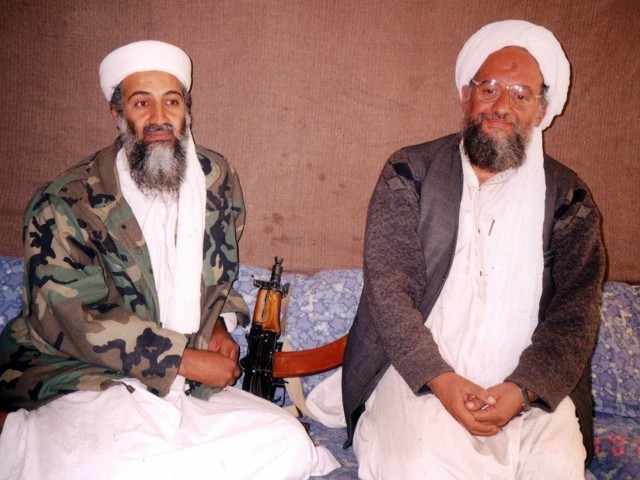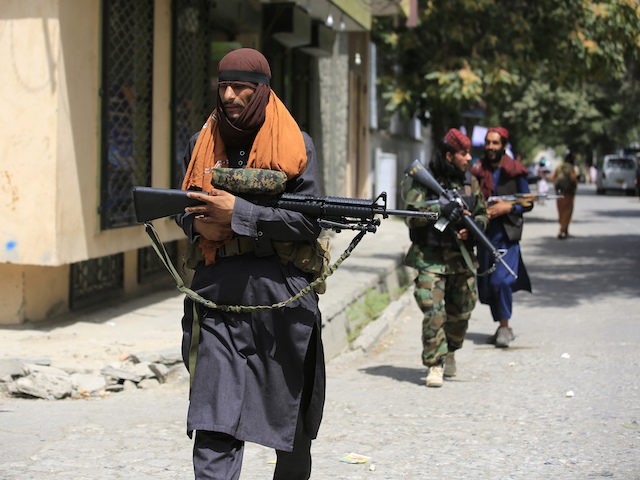Leaders of Afghanistan’s Taliban terror group allegedly met on Wednesday to discuss “how to respond” to a recent U.S. airstrike that killed al-Qaeda leader Ayman al-Zawahiri in Kabul, three Taliban sources told Reuters anonymously.
“There are meetings at a very high level on whether they should react to the drone strike, and in case they decide to, then what is the proper way,” Reuters reported on August 3 citing the account of a Taliban member “who holds an important position in Kabul.”
“The official, who said there had been lengthy leadership discussions for two days, declined to be identified,” according to the news agency.
“Another Taliban official confirmed the high-level meetings but said he did not know what was being discussed,” Reuters added.
U.S. President Joe Biden announced in a national address on August 2 that a U.S. military airstrike killed al-Zawahiri in Kabul on July 30. The Taliban currently rules Kabul after seizing control of the Afghan seat of government in August 2021. This means that the group was likely providing al-Zawahiri with a safe haven in Kabul before his assassination, which reportedly occurred as he stood on a balcony in the capital city.

Osama bin Laden (L) sits with his adviser Ayman al-Zawahiri, an Egyptian linked to the al Qaeda network, during an interview with Pakistani journalist Hamid Mir (not pictured) at an undisclosed location in Afghanistan. (Photo by Visual News/Getty Images)
Al-Zawahiri served as the leader of al-Qaeda, an international jihadist terror organization, from 2011 until his death last week. He succeeded Osama bin Laden as al-Qaeda’s chief in 2011 after a U.S. special forces team neutralized bin Laden in May of that year in Abbottabad, Pakistan. Bin Laden masterminded terrorist attacks on American soil by al-Qaeda on September 11, 2001. The U.S. War in Afghanistan (2001-2021) began based, in part, on suspicions by Washington that Afghanistan’s Taliban terror group had harbored bin Laden within the mountainous nation in the immediate aftermath of the September 2001 attacks. The U.S. government additionally suspected that the Taliban had generally provided al-Qaeda and its affiliates with hideouts in Afghanistan.
Al-Zawahiri served as bin Laden’s right-hand prior to bin Laden’s death in 2011, meaning his influence on al-Qaeda’s operations extended beyond his tenure as its top leader from 2011 to 2022.
Biden detailed some of al-Qaeda’s most infamous terror acts at the hands of al-Zawahiri during his August 1 speech, stating:
For decades, he was a mastermind behind attacks against Americans, including the bombing of the USS Cole in 2000, which killed 17 American sailors and wounded dozens more.
He played a key role — a key role in the bombing of U.S. embassies in Kenya and Tanzania, killing 224 and wounding over 4,500 others.
He carved a trail of murder and violence against American citizens, American service members, American diplomats, and American interests. And since the United States delivered justice to bin Laden 11 years ago, Zawahiri has been a leader of al Qaeda — the leader.
Al-Zawahiri additionally produced videos shortly before his death that urged al-Qaeda’s followers “to attack the United States and our allies,” Biden revealed.
The U.S. State Department issued a “Worldwide Caution” to U.S. citizens abroad on August 3 warning them of a heightened risk for “anti-American violence” in the aftermath of Al-Zawahiri’s assassination on July 30.
“Current information suggests that terrorist organizations continue to plan terrorist attacks against U.S. interests in multiple regions across the globe. These attacks may employ a wide variety of tactics including suicide operations, assassinations, kidnappings, hijackings, and bombings,” the notice read.

COMMENTS
Please let us know if you're having issues with commenting.